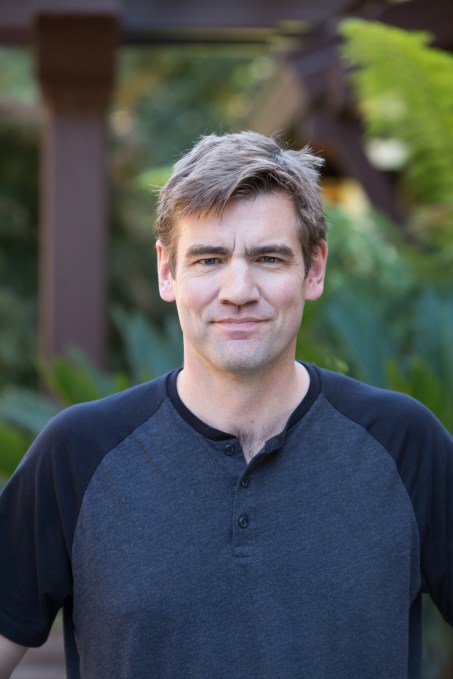Silicon Valley powerhouse Andreessen Horowitz has some big, and bigger, news today. First, it closed a dedicated crypto fund late last week from a subset of its limited partners, who’ve provided the firm with $300 million in capital commitments. The fund had become the worst-kept secret in the venture industry, largely because so many other venture firms are trying to figure out their own related strategies and have been watching closely AH’s slow but growing number of investments in crypto-related startups over the past five years.
Nine-year-old Andreessen Horowitz has also, at long last, brought aboard its first female general partner: Katie Haun, whose star has quietly been rising in the Bay Area over for the past couple of years. Haun, who is leading Andreessen’s crypto fund with general partner Chris Dixon (an early and unwavering advocate for cryptocurrencies), is kind of a big deal, so it’s no surprise that AH nabbed her.
Among her other many accomplishments, Haun spent more than a decade as a federal prosecutor with the U.S. Department of Justice, where she focused on fraud, cybercrime, and corporate compliance no-no’s alongside the SEC, FBI, and Treasury. According to Haun’s bio, she was also the DOJ’s first-ever coordinator for digital assets, and she led investigations into the Mt. Gox hack and the task force that investigated and ultimately took down the online drug marketplace Silk Road. Haun is also a lecturer at Stanford Business School and she’s a director on the board of the digital exchange Coinbase, which was backed early on by AH and where Haun got to know Dixon, who is also on the board. (Both are keeping their seats.)
We talked with both Haun and Dixon earlier today to learn more about the fund, including how they’re thinking about “exits” in the cryptocurrency world when there haven’t been a whole bunch (yet). Our conversation has been edited lightly for length.
TC: You’ve raised $300 million from some of the same investors who fund Andreessen Horowitz’s flagship funds. Will this fund in any way impact the next flagship fund? Does the firm intend to spend more time on crypto and less on other, more traditional investments?
CD: No, we’re still full-speed ahead on all traditional areas. The fund is way for us to double down on crypto and not in any way reduce our commitment to enterprise, consumer, or bio investing.
TC: Can this new fund invest in other crypto funds, as Union Square has been actively doing?
CD: It could, but we don’t plan to. We invested in Polychain and a few others about one-and-a-half years ago when we were figuring out our new crypto strategy. Now, with the full fund and investing in both early-stage and later-stage in crypto projects, the mandate is to be investing directly, though [we] never say never to anything.

TC: How many crypto investments has the firm made over the years, and will any of them be tucked into this new fund?
CD: We’ve made about 20 crypto investments over the last five years. [Bitcoin competitor] Ripple was my first investment in January 2013 and Coinbase later in 2013, then we did 21.co, which became Earn [and sold earlier this year to Coinbase]. We few others — OpenBazaar and Mediachain — then the space got a lot more interesting with the rise of Ethereum and talented entrepreneurs entering the space. Those [investments] will remain in the funds where we put them in.
TC: Have you made investments from this new fund?
CD: We’re in process with a few, but nothing that’s finalized.
TC: How have you been structuring these investments?
CD: Some are equity investments, but with token provisions in investments [meaning if they create a token, investors get access to them]. SAFTs are another thing we’ve done. We’ve also done direct, over-the-counter purchases of Bitcoin and Ethereum. But we were running into limits with what we could do out of the main fund. Now we’ll be able to do all sorts of things, as long as [we’re talking with] great entrepreneurs working on big and important projects with economic terms that make sense.
TC: What’s an exit going to look like with these deals?
CD: it’s a good question. To date, we’ve never sold any of our crypto assets. A lot of people in the market are day trading but we very much see this as investing. We’d expect any investment to have a five- to ten-year holding period. Some of these projects could have tokens that are freely tradable, so there’s the potential to have an exit that way. The most likely outcome is we invest in an early-stage project and we receive coins or tokens in exchange for [our commitment] and if the project becomes successful, those digital assets appreciate when thesis is played out. But if we invest in some project that will be used by hundreds of millions of people, we wouldn’t want to exit until that’s realized.
TC: And I assume you will not be paying your investors back in tokens?
CD: No. We have LPs who prefer fiat money.
TC: How do you think about ownership stakes in these companies?
CD: The traditional venture model of owning 10 to 20 percent of company isn’t realistic in this world. We do if a project is very early stage, the valuation should reflect that. But broadly, we’re thinking more in terms of value: can this investment be big enough that it returns the fund on its own? So we don’t think in terms of percentages but value. We think this next wave of companies could be 10 times as big [as their predecessors].
Source: Tech Crunch

